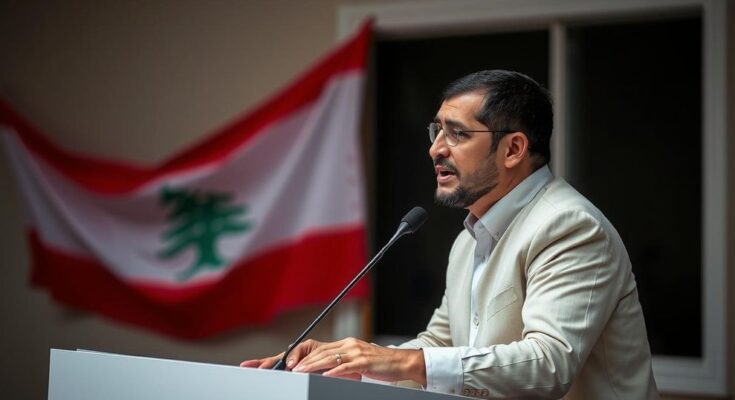Lebanon is set to elect a new president after over two years without effective leadership. This election is crucial amid economic crises and a recent ceasefire agreement. Joseph Aoun, a candidate with broad support, may symbolize a fresh start for the country, emphasizing the urgency for standardized governance.
Lebanon is on the cusp of electing its president after a prolonged period without effective leadership lasting over two years. Scheduled for Thursday, this election is critical as Lebanon grapples with multiple crises, including severe economic challenges and a recent ceasefire agreement between Israel and Hezbollah. The interim government under Prime Minister Najib Mikati possesses limited authority and has struggled to address Lebanon’s pressing issues. The need for a functioning executive to uphold the ceasefire, which expires at the end of January, emphasizes the urgency of electing a credible president.
Intensified negotiations have emerged among political factions, historically splintered along ethnic and religious lines, to select a suitable candidate. The election will adhere to Lebanon’s traditional confessional system, dictating that the president be a Maronite Christian, the prime minister a Sunni Muslim, and the speaker of parliament a Shiite Muslim. Joseph Aoun, a Maronite Christian and current commander of the Lebanese Armed Forces, is emerging as the frontrunner, gaining support across political divides due to Hezbollah’s recent willingness to consider alternate candidates.
Hezbollah’s prior preference for Sleiman Frangieh, a close associate of former Syrian president Bashar Assad, appears to have diminished following the recent conflict, which adversely affected Hezbollah’s domestic influence. Political analysts suggest that Aoun’s military integrity positions him favorably among the Lebanese populace, who largely regard the army as a trustworthy institution. His potential presidency could symbolize a fresh start for Lebanon, addressing the significant security challenges ahead.
Ultimately, regardless of electoral outcomes, the urgent requirement for Lebanon is to establish a duly elected government, thereby replacing the transitional administration that lacks legitimacy. The potential election of a new president marks a pivotal step towards stabilizing Lebanon and restoring lawful governance.
Lebanon finds itself in a precarious situation with no functional president for over two years, amid a backdrop of economic turmoil and security concerns related to ongoing tensions with Israel and Hezbollah. The Lebanese Constitution designates the prime minister and Cabinet as the state’s power holders, but their limited authority has failed to resolve critical national issues. The upcoming presidential election is not only crucial for governance but also for the sustainability of a recent ceasefire agreement, emphasizing a need for decisive leadership to navigate complex ethnic and political divisions within the country.
In conclusion, Lebanon’s forthcoming presidential election presents a significant opportunity to reestablish effective governance following an extended vacancy in leadership. With Joseph Aoun positioned as the leading candidate, the election may pave the way for much-needed reforms and actions to stabilize the nation’s economy and address security concerns. The establishment of a legitimate government will be critical for Lebanon’s functionality as a state.
Original Source: www.dw.com




